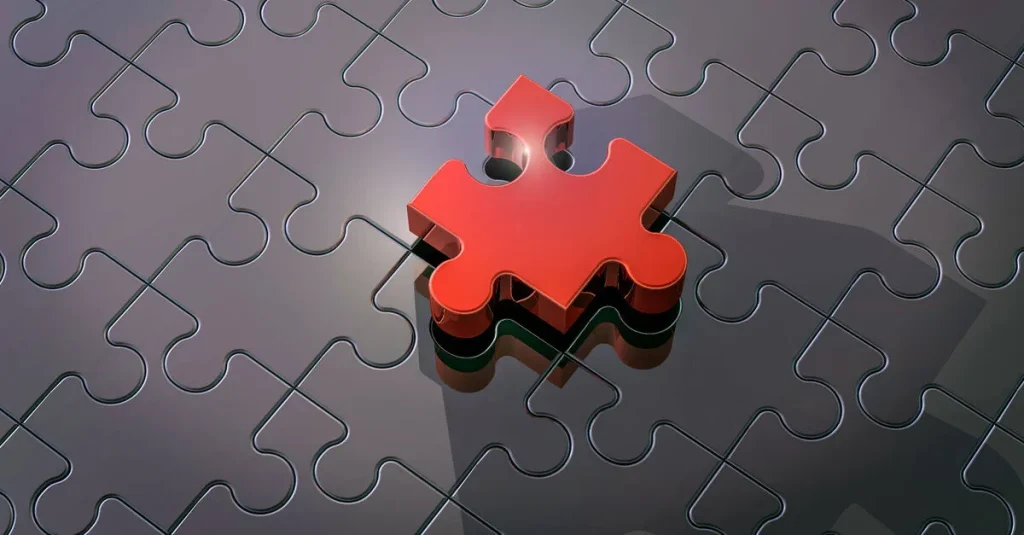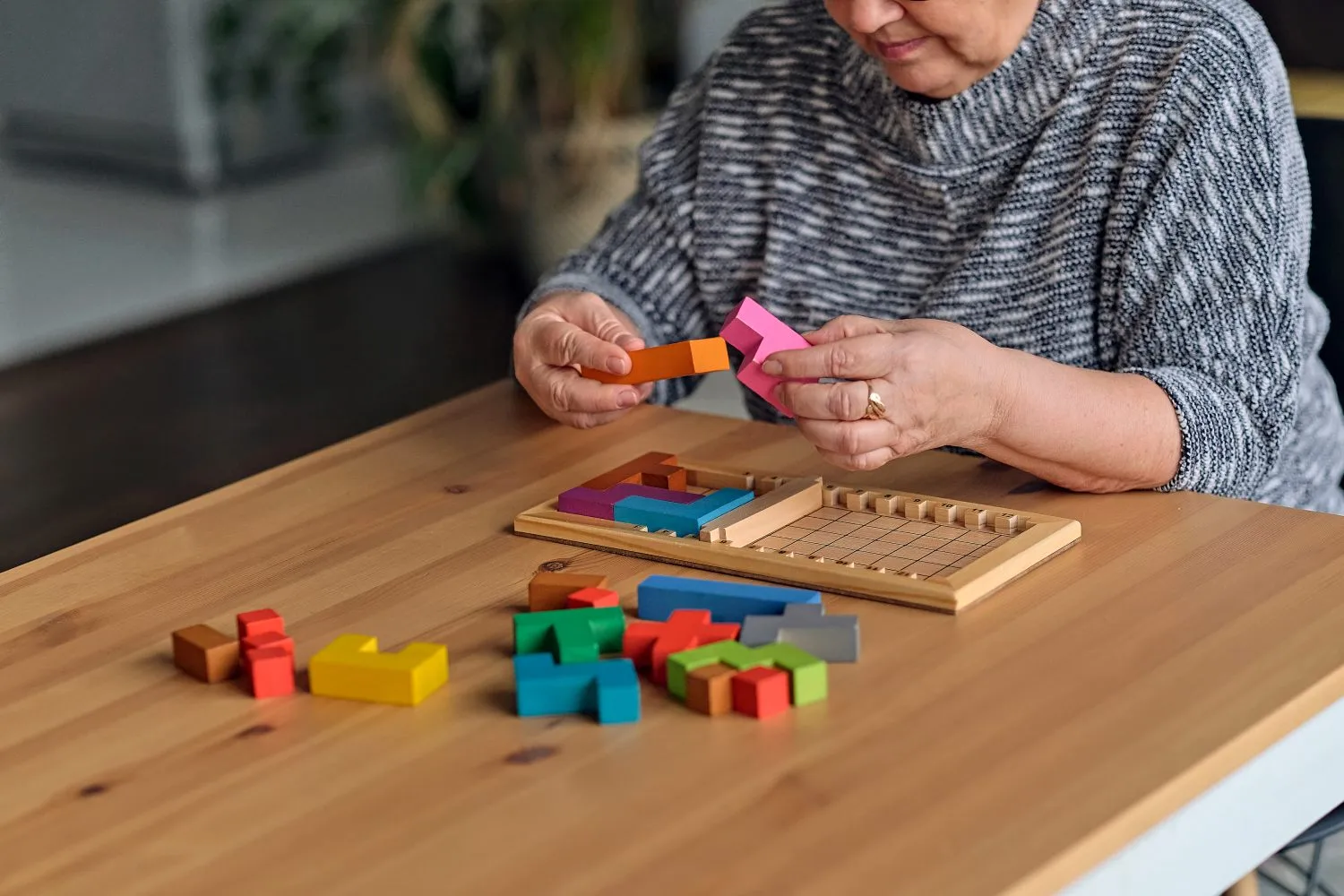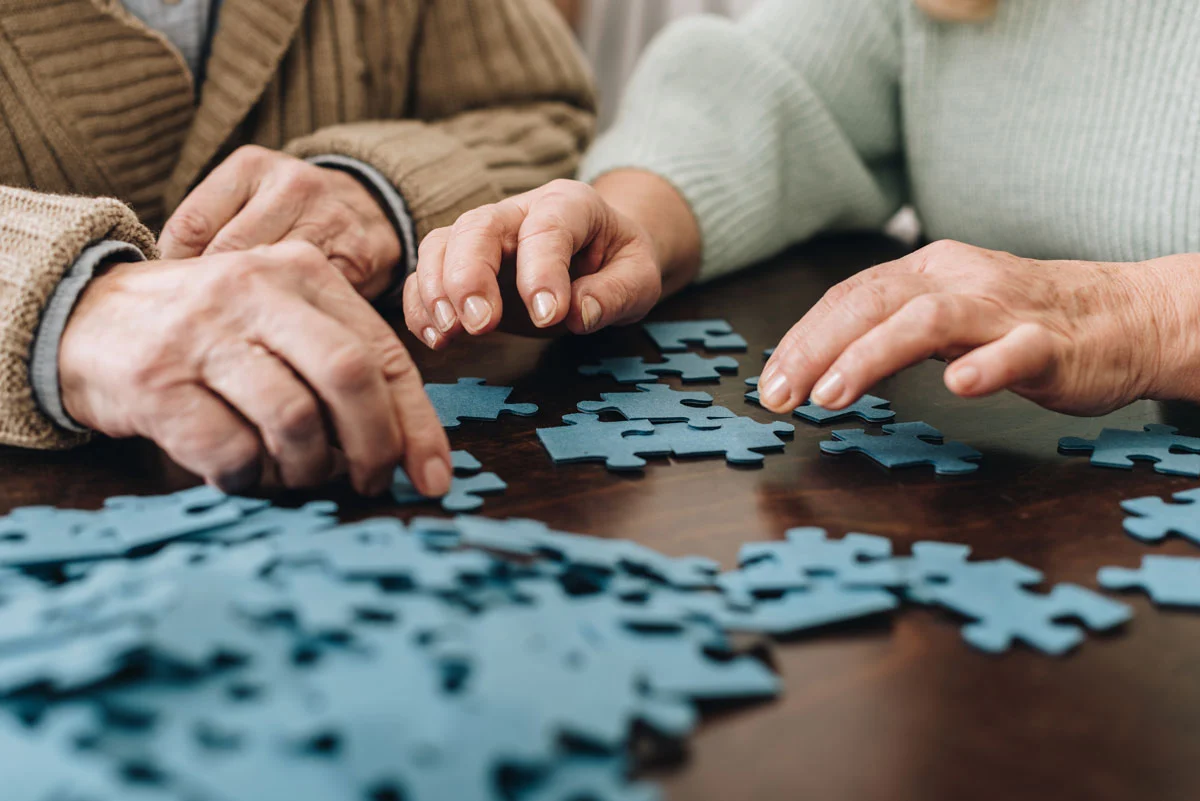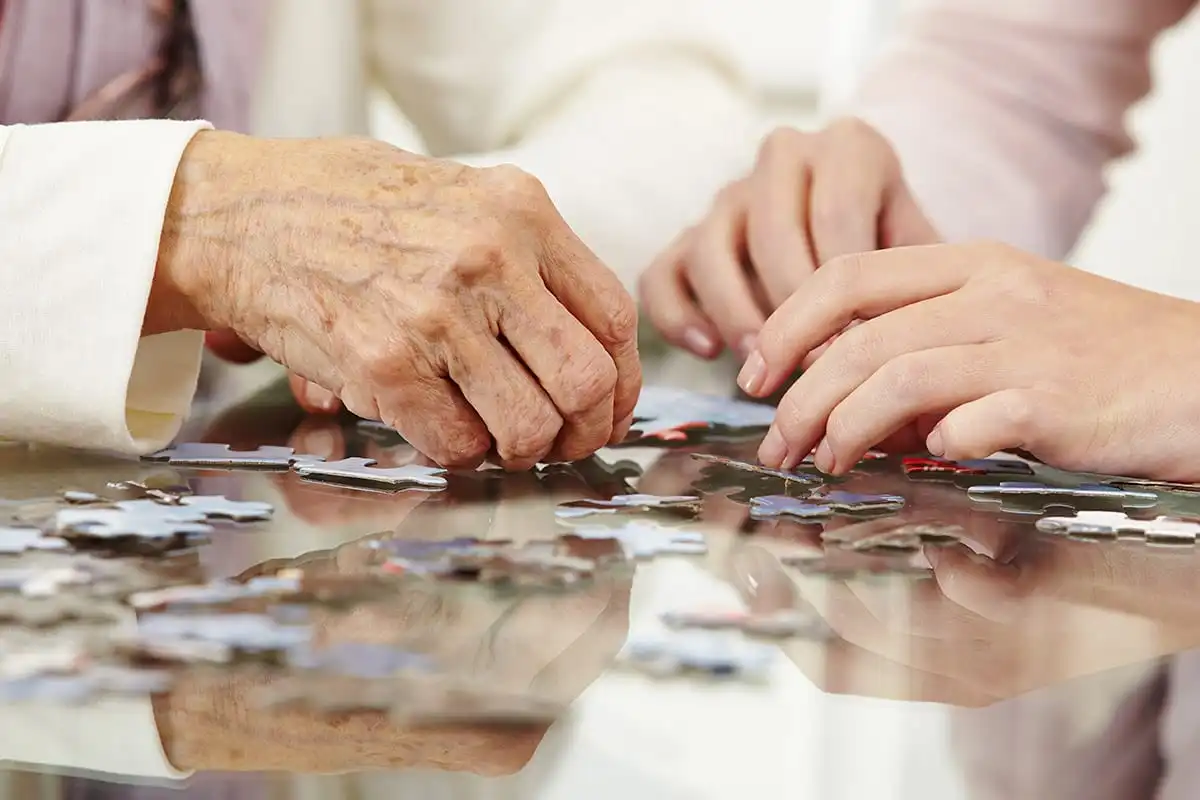
7 Magical Benefits of Puzzles for Elderly Brain Health
Older adults are more susceptible to Alzheimer’s, dementia, and memory problems than anyone else. Playing brain games and puzzles for elderly brain health can help prevent Alzheimer’s, dementia, and memory problems in them. Moreover, mental games can improve a person’s mood, life skills, memory and mental health, which results in improving the quality of life of the elderly.
Are you also interested in solving puzzles? Have you ever noticed how your mind functions after completing a puzzle? Do puzzles like gesg brain teaser help an aging brain? Research has shown that adults who regularly solve puzzles have sharper minds. It can be said that the more people solve puzzles, the better their brain functions. According to this research, the brain function of people who solve puzzles start their dementia process two and a half years later than other people. In this blog from humanhealthmag, you will learn how doing puzzles strengthens the brain and which puzzle is best for the brain?
Puzzle Solving: A Brief History
Puzzle solving and its existence are not limited to the modern and present era; rather, our ancestors have engaged in puzzle-solving in various forms since the ancient world. The earliest example dates back to 1700 BC in Cyprus. Furthermore, rudimentary versions were designed in China around 700 BC and were known as magic squares. Until the complete versions of the puzzle as a type of game were invented and registered in his name by the Englishman John Spilsbury. Spilsbury’s purpose in inventing the puzzle was to teach geographical concepts to children!
Different types of puzzles
How many types of puzzles are there? Puzzles like brain card games are designed in various types, including wooden, paper, three-dimensional and mechanical, which are used according to each person’s preference. The importance of playing a puzzle depends on its nature. That is, the different shapes and sizes are entirely a matter of taste. What makes puzzles particularly important is the brain’s exploration during their solution.
Nevertheless, to maximize the benefits of puzzles for elderly brain health, you can use puzzles that have more pieces. This way, the mental exploration and activity are greater, and the duration of the brain’s engagement increases. Additionally, it is more challenging to complete. This means that a large number of pieces ensures that the puzzle retains its appeal and effectiveness even after repeated attempts.

3 Overall Effects of Puzzles for Elderly Brain Health
Do you think elderly people should be encouraged to solve puzzles? When an elderly person is solving a puzzle in silence, you can be sure that three groups of abilities and skills are being strengthened in him/her, which are:
- Motor Skills
By picking up small puzzle pieces and placing them in the appropriate location, individuals’ motor skills are enhanced. Establishing a connection between what a person’s eyes see and what their hand does to pick up and place them strengthens parts of the brain, leading to improved hand-eye coordination. Picking up small pieces of a large puzzle and placing them on the designated board strengthens gross motor skills in the elderly. Placing a small puzzle piece in its correct spot requires the use of fine motor movements.
- Cognitive Skills
By solving puzzles and reaching the final image, their cognitive skills are strengthened. These cognitive skills include several aspects. One of them is the understanding of the world around them. There is no better way to strengthen people’s understanding of the world around them than by allowing them to change and manipulate this world! Playing with puzzles does this.
Understanding and strengthening spatial visualization is another area that is improved with puzzles. Typically, one starts playing with simple and small puzzles, with basic shapes like triangles, circles, and rectangles. After that, more complex puzzles come into play, further enhancing spatial visualization and the understanding of shapes and geometry in individuals.
Furthermore, the elderly person must remember the overall image and place the pieces together to create that final picture. This leads to memory enhancement. The ability to solve problems is not easily strengthened, and puzzles, by challenging whether a piece fits in the right place or not, help improve this ability in the elderly.
- Emotions
People of all ages learn patience by solving a puzzle. To complete a puzzle, one must envision a final image and strive to achieve that image. The prerequisite for doing this is setting a goal and working towards achieving it. Also, to reach a goal, one must be patient. Learning to be patient and striving towards the aforementioned goal is very valuable.

7 Magical Benefits of Solving Puzzles for Older Adults Brain Health
We all know that solving puzzles is very beneficial for acquiring physical and cognitive skills in children’s brains. But did you know that adult brains can also benefit from all the advantages of puzzles?! In other words, solving puzzles has seven major properties for the most important organ in your body – the brain. These seven magical properties of puzzles for elderly brain health are:
Solving Puzzles Exercises Both Sides of Your Brain
The two hemispheres of your brain control different functions. The left side of your brain deals with analytical and logical thinking, and the right side is related to creativity. When you work on a puzzle and solve it, you engage both sides of your brain. In fact, doing puzzles can activate both the left hemisphere of the brain (logic and analysis) and the right hemisphere (creativity and visualization). This simultaneous stimulation of the two brain hemispheres leads to an increase in cognitive abilities. For this reason, you give your brain a real mental workout that engages both hemispheres.
Solving Puzzles Improves Your Memory
Working on and solving various types of puzzles strengthens the connections between our brain cells. Also, constant thinking while solving puzzles causes new cells to be created in your brain. Therefore, solving puzzles is a great way to improve short-term memory. When we remember the shapes and sizes of the puzzle pieces and visualize their correct placement in our minds, we use our short-term memory. Consistent use of short-term memory and practice in strengthening it enhances other parts of memory, especially long-term and visual memory. This is inherently present in solving all types of puzzles.
Solving Puzzles Stimulates the Brain and Prevents Alzheimer’s Disease
Studies have shown that the production of new brain cells and the delay of their aging are possible with the help of solving puzzles. Therefore, since puzzles lead to the production of new brain cells and postpone their aging process, they can be effective in reducing the amount of brain damage and the risk of developing Alzheimer’s disease. This is because such activities stimulate the brain and prevent it from becoming stagnant. Although various factors such as nutrition play a significant role in the development of forgetfulness and Alzheimer’s disease, the use of brain-stimulating games will also be effective.

Solving Puzzles Improves Your Brain’s Problem-Solving Abilities
Problem-solving and critical thinking skills are useful in almost every situation in life. For this reason, solving puzzles and riddles greatly helps us cultivate these skills. Since we have to test different methods for puzzles and their solutions, we learn how to work by trial and error, build and test theories, and also quickly change our approach if we are not successful in order to achieve our desired result. According to psychologists, problem-solving ability is learned, not innate.
Solving Puzzles Releases Dopamine in the Brain
One of the benefits of solving puzzles is that it causes the production of dopamine in your brain. Dopamine is a type of neurotransmitter that regulates people’s mood. It also increases memory and concentration. When solving a puzzle, with each success, dopamine is released unconsciously in your brain. For this reason, your motivation to continue playing increases. Therefore, it is never surprising that puzzles for elderly brain health are so entertaining and engaging.
Solving Puzzles Reduces Stress and Induces Brain Meditation
Although solving puzzles strengthens our brain, it is also very relaxing. While we focus on how to solve them, our mind is only engaged in one task, and this encourages the brain to enter a meditative state. This leads to a better mindset, the acquisition of concentration skills, and coping with stress.
Solving Puzzles Can Improve Your IQ Score
Scientists have proven that the more active the brain is, the healthier it remains. It also gains more power and ability. This is true for most organs in the body. Just as human muscles need exercise to stay healthy and live longer, the human brain also needs more activity to stay healthy and have greater abilities.
One of the best options that activates the brain at any age, especially in old age, is solving puzzles, even online puzzles. According to research, persistence in doing this leads to an increase in IQ. According to the latest study conducted at the University of Michigan, researchers concluded that at least 25 minutes of puzzle-solving per day can increase your IQ by 4 percent.
Solving Puzzles Can Lead to Increased Self-Confidence in the Elderly
“I finished it!” or “I succeeded!”, “Come and see!” are phrases that an elderly person happily shouts after completing a puzzle. Completing a difficult and colorful puzzle gives them the feeling that they can successfully finish a task, and the result of their work is a beautiful and attractive image.

How to Choose the Best Puzzles for Elderly Brain Health
It is true that puzzles are inherently equal in nature. This means that each of them, without exception, has numerous benefits for the brains of children, adolescents, and even older adults. However, there are certain factors that, when considered, will lead you to make the best choice. This is because the best puzzle selection is directly linked to gaining the greatest benefits. Several factors for choosing the best puzzle are as follows:
Solving Complex Puzzles
All puzzles share one main element: they empower your brain. This empowerment often increases with the complexity of solving the puzzle. Therefore, choose puzzles where the cutting of the pieces is not simple and uniform but rather involves complexity and various details.
Solving Puzzles with More Pieces
How many puzzle pieces should an elderly person have? Choose puzzles that have more pieces. More pieces and the search for the desired piece among thousands not only enhance concentration but also increase visual acuity because the elderly person, in search of the desired piece, is forced to move their eyes, match colors, and sometimes move pieces closer or further away. This very process provides conditions for strengthening their visual power.
Solving Educative Puzzles
It is better if solving a puzzle ultimately leads you to an educational point. Playing puzzles means hours of continuous effort and thought to complete an image. An image that, in the end, is recorded in the player’s mind, especially the elderly, like a work of art. Therefore, choose a puzzle that, once solved, results in an artistic image, visual recognition, or conceptual understanding. The importance of observing this is greater for children and adolescents than for adults.
Solving Puzzles with Colorful Pieces
Colors are very important in the development of personality and the formation of healthy spirits in the elderly. Moreover, by strengthening color recognition skills, the brain automatically prevents perceptual errors of the eyes. This greatly helps in increasing intelligence and the correct functioning of the brain. Some puzzles for elderly brain health are designed and made in such a way that they effectively enhance color recognition skills and increase the perceptual abilities of the eyes because they are full of various colored pieces with a wide range of diverse hues.
Concluding Remarks
Now you know that puzzles are not just a simple pastime; rather, they are like a gym for the brain. Every piece you place correctly is like a weight you lift to strengthen memory, focus, and creativity. like brain exercises for elderly, it doesn’t matter how many pieces the puzzle has or how long it takes; what’s important is that puzzles for elderly brain health are beneficial, can challenge their minds, and allow them to enjoy this mental adventure.

Frequently Asked Questions
What Are the Benefits of Solving Puzzles for the Brain Health of Seniors?
Playing with puzzles significantly helps improve your memory and reduce the likelihood of Alzheimer’s by increasing your concentration and allowing you to use both sides of your brain. Of course, this game is also very beneficial for children.
Does Solving Puzzles Reduce Stress?
Undoubtedly, one of the most important benefits of puzzles is stress reduction for elderly and the relaxation they provide by increasing your concentration to solve the problem.
Are Puzzles with Many Pieces Suitable for Brain Health of the Elderly?
As people age, more complex puzzles can further help enhance their visual skills and problem-solving abilities.
